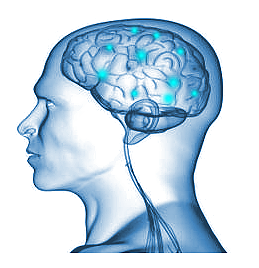Popular Articles
- Listol Supplement Facts
- 9 ADHD Products
- Adderall Alternatives
- Interactions with the ADHD Supplement Listol
- Helpful ADHD Vitamins & Attention Vitamins
- Cyntol Supplement Facts
- Memory Enhancement Supplements - Natural and Herbal Enhancers Reviewed
- ADHD Herbs - Guarana and Other Herbal Supplements
- ADHD Product Review - Synaptol
- Short-Term Memory | Supplements for Improvement
- More Articles ...
 Sleeping and MemoryIn This Article
Sleep is absolutely important to the process of memory formation. Without adequate sleep, the mind forgets to save memories and such memories are easily lost during the waking hours. Therefore, real memories are formed during sleep. Read on to find out how sleep helps us remember memories and how to use sleep to improve your memory.
Memory is an aspect of cognitive functioning that involves the encoding, storage, consolidation, and recall of experiences, learning, and recognition. The process of memory formation is afforded by the ability of the brain to make basic structural changes within the synapses (the junction between neurons). These changes create biochemical associations with the events being recorded. This process is called synaptic plasticity. Although memories are encoded very quickly in the brain (in milliseconds), they are also being changed during consolidation. The consolidation of memories can take as long as years but when it is done, memories are stable and resistant to all but the most powerful change agents (such as a head injury). Beyond instantaneous encoding of memories, the other processes of memory formation require sleep. Memory stabilization proceeds faster during sleep whether daytime nap or nocturnal sleep. However, different types of memories are consolidated at different stages of sleep. The Different Stages of Sleep Cycle
The 5 stages of sleep are divided into REM (rapid eye movement) and NREM (non-rapid eye movement) sleep. Four of the five stages of sleep qualify as NREM sleep. Each complete sleep cycle takes 90 – 110 minutes to complete, and REM sleep is usually the last stage. During sleep or wakefulness, the brain’s activity can be measured as waves with an electroencephalograph or EEG. Each stage of sleep usually corresponds to a type of brain wave. During wakefulness, beta waves are active. These have the highest frequency and lowest amplitude and are usually distorted because of the different activities that fill our waking hours. The five stages of sleep are:
The Language of MemoryDuring sleep, two types of brain activities are observed. The first type of activity, use-dependent activity, occurs every time you sleep. It is essentially neuronal regeneration which is experienced as a refreshing feeling after sleep. It occurs irrespective of whether there are new memories to store or not. The second type of brain activity that occurs during sleep is known as an experience-dependent activity. It occurs when there is a new skill, fact, or event to be committed to memory. This type of brain activity is made up of the process of memory enhancement and consolidation. During the encoding of a memory, a weak link is formed in the memory seat of the brain. This process is referred to as the stabilization of memory, and it usually occurs during the waking hours. The enhancement of memory follows this stage. It involves strengthening the memory by rehearsal (dreaming during sleep) and by cross-linking it to related but established memories in the brain. Stabilization of memory occurs most during night sleep but some types of memories are stabilized even during wakefulness. The whole process of encoding memories, stabilizing them, and integrating them with other memories is known as memory consolidation. Therefore, the consolidation of memory takes an unstable figment of memory and hardcodes it enough to be resistant to interference while making it easy to recall. The entire process involves biochemical reactions within brain cells as well as neurotransmitters signaling between different parts of the brain. Stabilization of memory proceeds rapidly, often finishing with milliseconds as the brain captures the memory and writes it down. Enhancement of memory takes longer while integration takes even longer. Sometimes the memory already consolidated as long-term memory can be pulled back into short-term memory. This process is known as reconsolidation and the stored memory is not resistant to being changed by new information. To investigate the effects of sleep on memory, researchers usually employ two techniques. The first is post-training sleep deprivation. In this case, the subject learns a new task and, thereafter, is deprived of sleep. The second method is pre-training sleep deprivation which involves sleep deprivation before exposure to the new task to be committed to memory. How Sleep Promotes the Consolidation of MemoryA 2009 study published in the Journal of Clinical Sleep Medicine detailed the role of slow-wave sleep in-memory processing.
This latter finding was supported by sleep deprivation studies which show that there is a diminished capacity for the initial storage of new memories after depriving the subject of overnight sleep. When deprived of sleep, there are changes in both the molecular processes going on in the brain. The evidence for these changes is further confirmed by imaging studies that show that sleep-deprived subjects have a different pattern of brain activity when compared to those who slept the normal hours. Besides the need for sleep in the consolidation of memory, slow-wave sleep which occurs during the NREM stage of the sleep cycle is also required for the consolidation of declarative memories (declarative memories are memories of conscious events including specific facts and experiences). The characteristic slow oscillations, spindles, ripples, and low cholinergic activity of slow-wave sleep are all essential for reactivating memories stored in the hippocampus and moving them to the neocortex for long-term storage. On the other hand, REM sleep is needed for synaptic plasticity (structural changes in the synapses between neurons) that is useful for consolidating memories in the cortex. Also, the theta waves and high cholinergic transmission that occurs during this stage of sleep help the storage of memories in the cortex. Therefore, it seems that during sleep memory is first consolidated in the hippocampus at the NREM or especially during stages 3 and 4 of sleep. During these deep sleep stages, these memories are then reactivated and redistributed to the neocortex. When the sleeping subject enters the next stage, REM sleep, the memories are consolidated in the cortex. Finally, a 2012 study published in the journal, Nature Neuroscience, proved that the information encoded during the waking hours are reactivated during sleep to improve the stability of such memories. By associating two melodies with visual symbols, the researchers were able to cultivate a paired association with sound and memory in some volunteers. Then by exposing the sleeping subjects to one of the melodies during an afternoon nap, they were able to observe signs (by observing brain wave activity, synaptic plasticity, and cholinergic activity) of memory processing during sleep even though the sound was not high enough to wake the sleeping subjects. The results showed that after the afternoon nap, the subjects were able to pair the learned melody played during sleep with the relevant visual cues than the learned melody that was not played. Sleep and Memory in Parkinson PatientsAs a component of the cognitive decline experienced by people with Parkinson’s disease, working memory is seriously affected. Working memory refers to the ability to store information and use it in the appropriate situation to meet the demands of daily tasks. Therefore, working memory is needed for planning, decision-making, and living independently. In a study published in the journal, Brain, the researchers from the National Institute of Neurological Disorder and Stroke and the National Institute of Aging demonstrated sleep can be used to improve working memory in Alzheimer's patients. This study involved 54 patients with Parkinson’s disease and 10 others with an even worse form of the disorder (dementia with Lewy bodies). These subjects were given the digit span test which involves learning a list of numbers and repeating them forward and backward. Repeating the number forward is a demonstration of short-term memory while repeating them backward demonstrates working memory. In this study, the set of numbers to be repeated was increased for each of the subjects until the subject made a mistake. Each subject took 4 tests during the first day and 4 during the second day after allowing a period of nighttime sleep. The result of the study showed that people suffering from dementia with Lewy bodies did not get better. Sleep did not provide any benefits whatsoever for their memories and their scores were lower than those of Alzheimer patients before and during the tests. Of the Alzheimer patients, those placed on dopamine-enhancing drugs got better. Their ability to recall the numbers backward improved by a single digit even though their ability to repeat the numbers forward did not. However, Alzheimer's patients who were not receiving dopamine drugs saw no improvements. This study provides an important insight into how sleep can modify memory in Alzheimer's patients. It shows that sleep coupled with dopamine-enhancing drugs can help train Alzheimer's patients to remember things better. Also, this study demonstrates the need to investigate the role of dopamine in the consolidation of memory. In ConclusionIt is now a fact that sleep improves memory. More specifically, the last 3 stages of sleep (stages 3 and 4 or deep sleep or slow-wave sleep as well as REM sleep) are important for the consolidation of short-term memory as well as declarative and non-declarative memories and for translating these memories into long-term memories. Chronic sleep deprivation such as reducing the normal hours of night-time sleep is also bad for memory. In fact, chronic sleep deprivation is believed to be one cause of premature aging. It conditions the memory seats of the brain to process memories inefficiently. This soon leads to difficulty learning, remembering information, and finding associations between multiple memories. Lastly, even daytime nap provides some benefits for memory. It may not take as long as nighttime sleep but it can help improve the initial encoding of information and speed up the stabilization of memories. Early stabilization of memory is essential because while it is still not consolidated, memory is subject to changes by current information and it may even be lost if a more significant event displaces it before it is committed to long-term memory. Therefore, sleep is highly recommended. Eight hours of sleep is the recommended daily duration of rest. When this is unattainable, an afternoon nap should be used to supplement nighttime sleep because real memories are formed only after we power down. Sourceshttp://www.ncbi.nlm.nih.gov/pmc/articles/PMC2824214/ http://www.sciencemag.org/content/294/5544/1058.short http://www.annualreviews.org/doi/abs/10.1146/annurev.psych.56.091103.070307
[+] Show All
|
| Next Article: ADHD & GABA - Will it Help? |





 Although sleep appears to be a linear progression of rest and dreams, it is really a cycle of 5 stages.
Although sleep appears to be a linear progression of rest and dreams, it is really a cycle of 5 stages. This study is a one-stop summary of sleep research up to that stage, and it provides evidence to support the importance of sleep not only in the overnight consolidation of memories but also to restore the encoding capacity of the hippocampus for capturing new memories the next day.
This study is a one-stop summary of sleep research up to that stage, and it provides evidence to support the importance of sleep not only in the overnight consolidation of memories but also to restore the encoding capacity of the hippocampus for capturing new memories the next day.